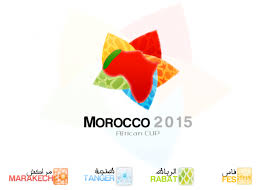By Andrew Warshaw
November 4 – Amid an intensifying impasse, Morocco has been given a fresh deadline of Saturday to decide whether they will host January’s showpiece Africa Cup of Nations – with a final decision to be taken three days later by the Confederation of African Football (CAF).
Despite intensive talks in Rabat between the hosts, who say they would not be able to carry out sufficient health checks against Ebola, and their confederation, Morocco have been asked to “clarify their position” by November 8 with the veiled threat of sanctions if they refuse to budge from their demand for a delay or postponement.
For their part, CAF have re-iterated that they will not shift the tournament and will convene again on Tuesday in Cairo, Egypt, to take “the necessary decisions” about the finals.
Morocco’s health ministry says hosting the 16-team tournament risks the spread of the deadly virus which has killed about 5,000 people – mostly in three west African states.
CAF, who are reported to have rejected Morocco’s request to move the tournament to either June or January 2016, have asked seven countries if they might be able to step in as emergency hosts at short notice but several of them have already turned the offer down.
CAF media director Junior Binyam said: “Any change in date would be detrimental to the timing of Nations Cup which is bound to take place as scheduled in the FIFA international calendar.”
In a lengthy statement CAF accused Morocco of overplaying concerns about not being able to scan thousands of fans entering the country, saying the hosts were “more than capable of coping with limited flow” of spectators during the three-week finals.
To make matters even more pressing, the draw for the finals is scheduled for November 26 in Rabat.
CAF pointed out that Morocco already allows one of the three countries hardest hit by Ebola, Guinea, to stage its home games there and explained why they were taking such a strong stance.
“Of the three countries where the epidemic is prevalent, only Guinea retains a chance of qualifying for the final tournament,” said CAF. “In addition, Guinea hosts its home games in Casablanca and has adhered to a strict health protocol implemented by Morocco that has so far showed no flaws.
“Morocco, a country where no cases of Ebola have been identified, welcomes in the coming weeks and a few days before the (Nations Cup), the Club World Cup where there will be participants from a country where a case of the Ebola virus has been identified (Spain).
“The number of foreign fans expected in the stadiums for the Club World Cup 2014 is much higher than the ones expected for the Nations Cup.”
The Moroccans might argue that this is highly debatable and that only two of the eight Club World Cup participants are from Africa – one of them Moroccan – as distinct from hosting 16 African countries in the Nations Cup.
Nevertheless, CAF believes Morocco’s stance is far too cautious and not based on reality.
“Almost all of the fans attending the Nations Cup are residents of Morocco, and considering the average purchasing power in most African countries, it is unrealistic to expect more than 1,000 supporters from the rest of continent to attend the (tournament), except for those who benefit from a geographic proximity within the Maghreb region.
“CAF considers that the current health system in place in Morocco, and whose effectiveness has been proven, is more than able to cope with the very limited flow of people for the Nations Cup.”
CAF also said it had strictly adhered to World Health Organisation directives, banning the three main countries where Ebola has struck from hosting games and that no transmission of the Ebola virus had been reported “in connection with a football match”.
Contact the writer of this story at moc.l1734892004labto1734892004ofdlr1734892004owedi1734892004sni@w1734892004ahsra1734892004w.wer1734892004dna1734892004

